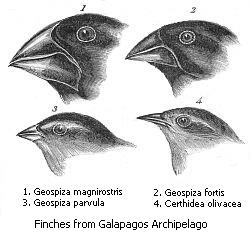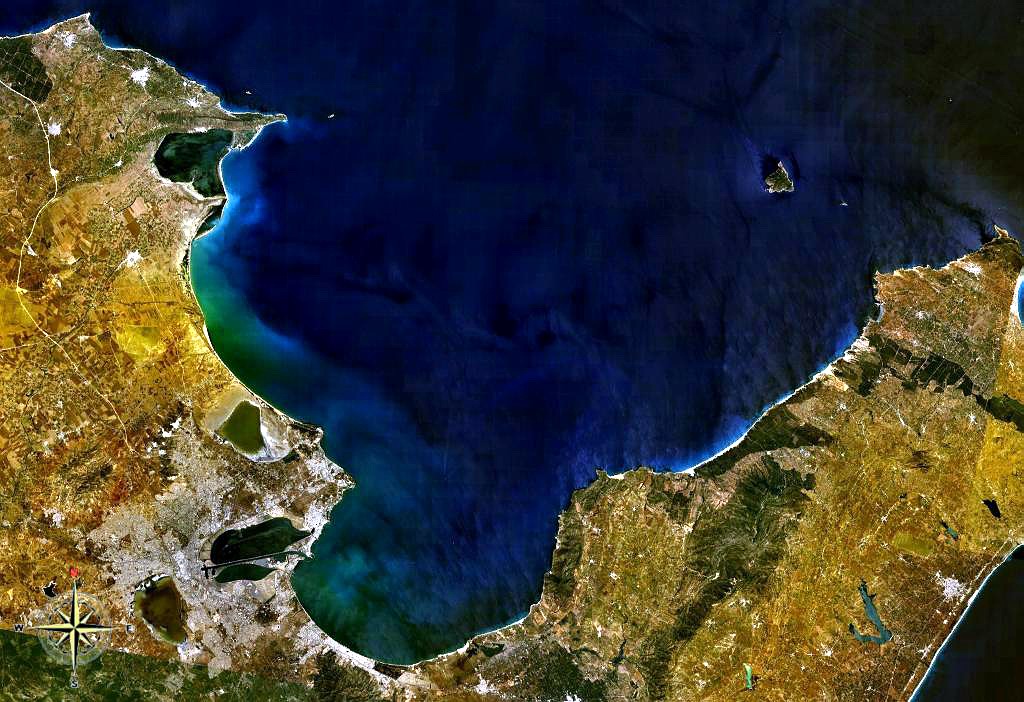|
Olga F. Linares
Olga Francesca Linares (November 10, 1936 – December 2, 2014; formerly Olga Linares de Sapir) was a Panamanian–American academic anthropologist and archaeologist, and senior staff scientist ( emerita) at the Smithsonian Tropical Research Institute (STRI) in Panama, who have supported much of her research throughout her career. She is well known for her work on the cultural ecology of Panama, and more recently in the Casamance region of Southern Senegal. She is also concerned with the social organization of agrarian systems as well as the relationship between "ecology, political economy, migration and the changing dynamics of food production among rural peoples living in tropical regions".Smithsonian Family Olga Linares was born November 10, 1936 in the city of David, Panama,''International Who's Who of Women'' (Sleeman 2001: 333) the daughter of Francisco (Frank) Esteban Linares and Olga Tribaldos de Linares., She married her second husband Martin Moynihan, founding direc ... [...More Info...] [...Related Items...] OR: [Wikipedia] [Google] [Baidu] |
Emeritus
''Emeritus'' (; female: ''emerita'') is an adjective used to designate a retired chair, professor, pastor, bishop, pope, director, president, prime minister, rabbi, emperor, or other person who has been "permitted to retain as an honorary title the rank of the last office held". In some cases, the term is conferred automatically upon all persons who retire at a given rank, but in others, it remains a mark of distinguished service awarded selectively on retirement. It is also used when a person of distinction in a profession retires or hands over the position, enabling their former rank to be retained in their title, e.g., "professor emeritus". The term ''emeritus'' does not necessarily signify that a person has relinquished all the duties of their former position, and they may continue to exercise some of them. In the description of deceased professors emeritus listed at U.S. universities, the title ''emeritus'' is replaced by indicating the years of their appointmentsThe Protoc ... [...More Info...] [...Related Items...] OR: [Wikipedia] [Google] [Baidu] |
International Plant Genetic Resources Institute
Bioversity International is a global research-for-development organization that delivers scientific evidence, management practices and policy options to use and safeguard agricultural biodiversity to attain global food security, food and nutrition security, working with partners in low-income countries in different regions where agricultural biodiversity can contribute to improved nutrition, resilience, productivity and climate change adaptation. Bioversity International is a member of the CGIAR, a global research partnership for a food-secure future. The organization is highly decentralized, with about 300 staff working around the world. Its headquarters are in Rome's Maccarese borough, Italy, with regional offices located in Central and South America, West and Central Africa, East and Southern Africa, Central and South Asia, and South-east Asia. In 2019, Bioversity International joined with the International Center for Tropical Agriculture (as the Alliance of Bioversity Interna ... [...More Info...] [...Related Items...] OR: [Wikipedia] [Google] [Baidu] |
Western Panama
Western may refer to: Places *Western, Nebraska, a village in the US *Western, New York, a town in the US *Western Creek, Tasmania, a locality in Australia *Western Junction, Tasmania, a locality in Australia *Western world, countries that identify with shared "Western" culture Arts and entertainment Films * ''Western'' (1997 film), a French road movie directed by Manuel Poirier * ''Western'' (2017 film), a German-Austrian film Genres *Western (genre), a category of fiction and visual art centered on the American Old West **Western fiction, the Western genre as featured in literature **Western music (North America), a type of American folk music Music * ''Westerns'' (EP), an EP by Pete Yorn *WSTRN, a British hip hop group from west London Business *The Western, a closed hotel/casino in Las Vegas, United States *Western Cartridge Company, a manufacturer of ammunition *Western Publishing, a defunct publishing company Educational institutions *Western Washington University i ... [...More Info...] [...Related Items...] OR: [Wikipedia] [Google] [Baidu] |
Prehistoric
Prehistory, also known as pre-literary history, is the period of human history between the use of the first stone tools by hominins 3.3 million years ago and the beginning of recorded history with the invention of writing systems. The use of symbols, marks, and images appears very early among humans, but the earliest known writing systems appeared 5000 years ago. It took thousands of years for writing systems to be widely adopted, with writing spreading to almost all cultures by the 19th century. The end of prehistory therefore came at very different times in different places, and the term is less often used in discussing societies where prehistory ended relatively recently. In the early Bronze Age, Sumer in Mesopotamia, the Indus Valley Civilisation, and ancient Egypt were the first civilizations to develop their own scripts and to keep historical records, with their neighbors following. Most other civilizations reached the end of prehistory during the following Iron Age. T ... [...More Info...] [...Related Items...] OR: [Wikipedia] [Google] [Baidu] |
Adaptive Radiation
In evolutionary biology, adaptive radiation is a process in which organisms diversify rapidly from an ancestral species into a multitude of new forms, particularly when a change in the environment makes new resources available, alters biotic interactions or opens new environmental niches. Starting with a single ancestor, this process results in the speciation and phenotypic adaptation of an array of species exhibiting different morphological and physiological traits. The prototypical example of adaptive radiation is finch speciation on the Galapagos ("Darwin's finches"), but examples are known from around the world. Characteristics Four features can be used to identify an adaptive radiation: #A common ancestry of component species: specifically a ''recent'' ancestry. Note that this is not the same as a monophyly in which ''all'' descendants of a common ancestor are included. #A phenotype-environment correlation: a ''significant'' association between environments and the morp ... [...More Info...] [...Related Items...] OR: [Wikipedia] [Google] [Baidu] |
Costa Rica
Costa Rica (, ; ; literally "Rich Coast"), officially the Republic of Costa Rica ( es, República de Costa Rica), is a country in the Central American region of North America, bordered by Nicaragua to the north, the Caribbean Sea to the northeast, Panama to the southeast, the Pacific Ocean to the southwest, and Maritime boundary, maritime border with Ecuador to the south of Cocos Island. It has a population of around five million in a land area of . An estimated 333,980 people live in the capital and largest city, San José, Costa Rica, San José, with around two million people in the surrounding metropolitan area. The sovereign state is a Unitary state, unitary Presidential system, presidential Constitution of Costa Rica, constitutional republic. It has a long-standing and stable democracy and a highly educated workforce. The country spends roughly 6.9% of its budget (2016) on education, compared to a global average of 4.4%. Its economy, once heavily dependent on agricultu ... [...More Info...] [...Related Items...] OR: [Wikipedia] [Google] [Baidu] |
Stratified Refuge Deposits
Stratification may refer to: Mathematics * Stratification (mathematics), any consistent assignment of numbers to predicate symbols * Data stratification in statistics Earth sciences * Stable and unstable stratification * Stratification, or stratum, the layering of rocks * Stratification (archeology), the formation of layers (strata) in which objects are found * Stratification (water), the formation of water layers based on temperature (and salinity, in oceans) * Lake stratification, the formation of water layers based on temperature, with mixing in the spring and fall in seasonal climates. * Atmospheric stratification, the dividing of the Earth's atmosphere into strata * Inversion (meteorology) Social sciences * Social stratification, the dividing of a society into levels based on power or socioeconomic status Biology * Stratification (seeds), where seeds are treated to simulate winter conditions so that germination may occur * Stratification (clinical trials), partitioning of ... [...More Info...] [...Related Items...] OR: [Wikipedia] [Google] [Baidu] |
Chronology
Chronology (from Latin ''chronologia'', from Ancient Greek , ''chrónos'', "time"; and , '' -logia'') is the science of arranging events in their order of occurrence in time. Consider, for example, the use of a timeline or sequence of events. It is also "the determination of the actual temporal sequence of past events".Memidex/WordNet, "chronology,memidex.com (accessed September 25, 2010). Chronology is a part of periodization. It is also a part of the discipline of history including earth history, the earth sciences, and study of the geologic time scale. Related fields Chronology is the science of locating historical events in time. It relies upon chronometry, which is also known as timekeeping, and historiography, which examines the writing of history and the use of historical methods. Radiocarbon dating estimates the age of formerly living things by measuring the proportion of carbon-14 isotope in their carbon content. Dendrochronology estimates the age of trees by corre ... [...More Info...] [...Related Items...] OR: [Wikipedia] [Google] [Baidu] |
Chiriquí Province
Chiriquí () is a province of Panama located on the western coast; it is the second most developed province in the country, after the Panamá Province. Its capital is the city of David. It has a total area of 6,490.9 km², with a population of 462,056 as of the year 2019. The province of Chiriquí is bordered to the north by the province of Bocas del Toro, to the west by Costa Rica, to the east by the province of Veraguas, and to the south by the Pacific Ocean, specifically the Gulf of Chiriquí. History Until the arrival of the Spanish ''conquistadores'', Chiriquí was populated by a number of indigenous tribes, known collectively as the Guaymí people. The first European to visit and describe Chiriquí was Gaspar de Espinosa, in 1519. The province was officially established on May 26, 1849, when Panama was still part of Colombia. Several years later, President Abraham Lincoln of the United States proposed Chiriquí as a favored location for Linconia, a colony for free ... [...More Info...] [...Related Items...] OR: [Wikipedia] [Google] [Baidu] |
Gulf Of Chiriqui
A gulf is a large inlet from the ocean into the landmass, typically with a narrower opening than a bay, but that is not observable in all geographic areas so named. The term gulf was traditionally used for large highly-indented navigable bodies of salt water that are enclosed by the coastline. Many gulfs are major shipping areas, such as the Persian Gulf, Gulf of Mexico, Gulf of Finland, and Gulf of Aden The Gulf of Aden ( ar, خليج عدن, so, Gacanka Cadmeed 𐒅𐒖𐒐𐒕𐒌 𐒋𐒖𐒆𐒗𐒒) is a deepwater gulf of the Indian Ocean between Yemen to the north, the Arabian Sea to the east, Djibouti to the west, and the Guardafui Channe .... See also * References External links * {{Authority control Bodies of water Coastal and oceanic landforms Coastal geography Oceanographical terminology ... [...More Info...] [...Related Items...] OR: [Wikipedia] [Google] [Baidu] |
South America
South America is a continent entirely in the Western Hemisphere and mostly in the Southern Hemisphere, with a relatively small portion in the Northern Hemisphere at the northern tip of the continent. It can also be described as the southern subregion of a single continent called America. South America is bordered on the west by the Pacific Ocean and on the north and east by the Atlantic Ocean; North America and the Caribbean Sea lie to the northwest. The continent generally includes twelve sovereign states: Argentina, Bolivia, Brazil, Chile, Colombia, Ecuador, Guyana, Paraguay, Peru, Suriname, Uruguay, and Venezuela; two dependent territories: the Falkland Islands and South Georgia and the South Sandwich Islands; and one internal territory: French Guiana. In addition, the ABC islands of the Kingdom of the Netherlands, Ascension Island (dependency of Saint Helena, Ascension and Tristan da Cunha, a British Overseas Territory), Bouvet Island ( dependency of Norway), Pa ... [...More Info...] [...Related Items...] OR: [Wikipedia] [Google] [Baidu] |



